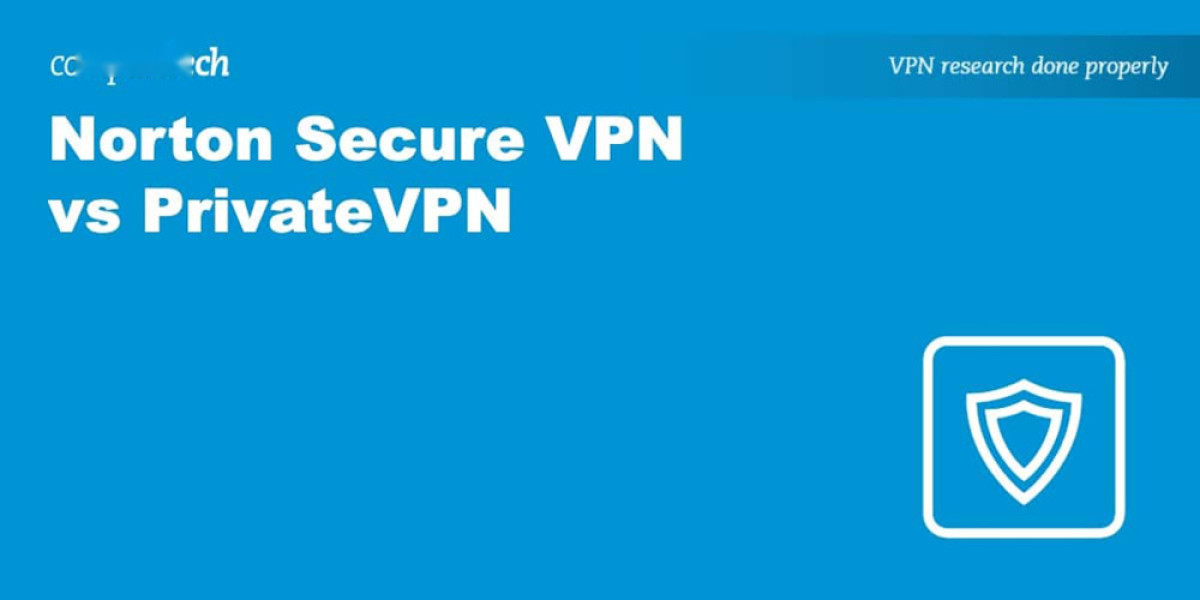VPN Performance Comparison
With countless VPN options available,
users often struggle to identify trustworthy services
amidst misleading marketing campaigns.
Our evaluation framework cuts through the hype,
assessing real-world performance metrics and restrictions.
This examination pits two providers against each other -
Norton's established security ecosystem versus PrivateVPN's niche appeal.
We scrutinized connection reliability across regions,
encryption standards for data protection,
and logging policies affecting anonymity.
Streaming compatibility tests focused on bypassing
geo-restrictions for platforms including Netflix and Hulu.
Results reveal key differences in server network optimization
and protocol configurations impacting content accessibility.
Payment flexibility shows distinct approaches. PrivateVPN enables cryptocurrency transactions through Bitcoin, paired with disposable email addresses for complete anonymity
Norton Secure VPN sticks to traditional payment rails – credit cards and PayPal only
Refund policies reveal strategic differences. PrivateVPN maintains a standard 30-day money-back guarantee across all plan durations
Norton offers extended 60-day returns but exclusively for annual subscriptions, leaving monthly users unprotected
Device economics separate the services. Norton employs variable pricing tiers (1/5/10 devices) with costs scaling accordingly
PrivateVPN provides 10 simultaneous connections universally, even on entry-level plans
Short-term needs demand careful calculation. Solo travelers might prefer Norton's $4.99 single-device monthly plan
Families find better value in PrivateVPN's $9.90/month package covering 10 devices
Long-term commitments unlock major disparities. PrivateVPN's three-year plan plummets to $2/month (85% savings)
Norton's best annual offer reduces 10-device access to $4.99/month (40% discount)
Trial strategies matter. Norton's 60-day refund window permits thorough testing but chains users to annual plans
PrivateVPN's 30-day guarantee works for all subscriptions, offering flexibility across payment durations
Subscription models reflect different philosophies. Norton caters to varying user scales with device-specific pricing
PrivateVPN bets on simplicity – maximum connections at every tier, appealing to multi-device households
Budget priorities decide the winner. While Norton offers accessible entry points for minimal users
PrivateVPN's combination of unlimited 10-device access and aggressive long-term pricing makes it the cost champion
Cross-platform compatibility varies between these services
PrivateVPN extends functionality to Amazon Fire TV devices
while Norton lacks dedicated apps for this ecosystem
Both services omit browser extensions
but compensate with full-system VPN protection
Router-level configuration is exclusively available through PrivateVPN
enabling network-wide security implementations
Multi-device policies differ substantially
PrivateVPN permits 10 simultaneous connections across all plans
Norton employs tiered subscriptions (1/5/10 devices)
with long-term PrivateVPN plans offering cost efficiencies
Core security mechanisms include essential kill-switch protection
Norton distinguishes itself with granular split-tunneling controls
allowing application-specific VPN routing
Supplementary feature sets reveal service specializations:
• Norton provides integrated ad/malware filtration
• PrivateVPN offers advanced torrenting tools (port forwarding, proxy servers)
• Obfuscation technology masks VPN usage through HTTPS mimicry
Protocol support diverges significantly
PrivateVPN enables OpenVPN/WireGuard configurations
including Linux compatibility through CLI solutions
Norton maintains closed-system architecture without config file access
P2P optimization demonstrates clear service differentiation
PrivateVPN demonstrates superior torrenting capabilities
with dedicated infrastructure and activist-developed protocols
Network administrators should note
both solutions permit VPN sharing via virtual hotspots
but router integration remains PrivateVPN-exclusive
Service selection criteria should prioritize:
• Fire TV/Amazon ecosystem requirements
• Linux environment compatibility needs
• Advanced torrenting/P2P use cases
• Network-wide deployment considerations
Long-term cost analysis favors PrivateVPN
particularly for multi-device households
when leveraging extended subscription models
PrivateVPN continues to outshine Norton Secure VPN in the realm of streaming, despite improvements made by Norton. While Norton has enhanced its capabilities, it still lacks official support for Netflix USA and other regions. In contrast, PrivateVPN offers access to over 20 Netflix libraries, including those in the USA, Canada, UK, Japan, Germany, South Korea, Spain, and Italy, making it a top choice for Netflix enthusiasts.
Norton Secure VPN does provide access to several popular streaming services, such as Prime Video, CBS, NBC, and the UK's Channel 4. However, its performance with BBC iPlayer has been inconsistent, with some users reporting issues. Additionally, Norton fails to unblock Hulu, ABC, ITV, HBO Max, DAZN, and Disney Plus, which can be a significant drawback for many users.
On the other hand, PrivateVPN demonstrates remarkable versatility. It successfully unlocks a wide range of streaming platforms, including Hulu, Sky Go, Prime Video, BBC iPlayer, CBS, NBC, Peacock, Channel 4, ITV, and the Canadian version of DAZN. This extensive compatibility makes PrivateVPN a superior option for those who value a broad and reliable streaming experience.
China enforces a strict internet censorship policy, commonly known as the "Great Firewall," which restricts access to many Western websites and services. This measure is implemented for political control, aiming to confine users within a regulated online environment.
Due to these restrictions, popular platforms such as Facebook, Google, Wikipedia, YouTube, Instagram, Twitch, Spotify, and Reddit are inaccessible. Additionally, numerous news sources, including the BBC and The New York Times, are also blocked.
Virtual Private Networks (VPNs) offer a potential solution to bypass these limitations. However, the Chinese government collaborates with Internet Service Providers (ISPs) to block many VPNs, making only a few still functional in the country.
One of the effective options is PrivateVPN, which includes a stealth feature. This feature disguises your connection, allowing it to evade detection by China's firewall. To activate this, navigate to the Stealth VPN tab and turn on the Stealth VPN option.
In contrast, Norton Secure VPN lacks the necessary obfuscation capabilities and is not designed to overcome such stringent firewalls. Consequently, it is not a viable option for use in China.
signing up and getting started with either vpn is a breeze. both platforms streamline the process: enter your email, choose a payment option, and you’re set. apps are accessible either via their official sites for desktops or through mobile app stores—no hunting required.
installation is equally straightforward. lightweight files mean minimal wait time, and automated setup wizards handle the technical bits. once installed, the apps remain logged in for future sessions, letting you connect instantly whenever you launch them.
user-friendliness shines in both interfaces. clean layouts avoid clutter, with intuitive menus that guide newcomers. while advanced features like split tunneling (norton) or port forwarding (privatevpn) exist, they’re tucked away—optional tools for those who seek them, backed by detailed online tutorials.
server lists are organized alphabetically, simplifying location selection. out of the box, both services prioritize security with default settings that lock down privacy immediately. perfect for novices wanting instant protection without tweaking configurations.
To be effective, a VPN needs to offer a broad range of server locations. This allows users to acquire an IP address from another country, essential for accessing region-locked content or maintaining access to home-based services while traveling. Both Norton Secure VPN and PrivateVPN provide a variety of server locations, catering to different needs.
PrivateVPN boasts servers in over 63 countries, including 12 US cities. This extensive network enables users to access localized services, such as state-specific content or sporting events. All of PrivateVPN's servers are bare metal and fully managed by the provider, enhancing user privacy and security.
On the other hand, Norton Secure VPN offers a more limited selection with servers in only 31 countries. Additionally, Norton's service restricts users to choosing a country rather than a specific city, which can be a drawback for those seeking more precise location control.
To evaluate the performance of these VPNs, we conducted tests on servers in the UK, the US, and Hong Kong, focusing on average download speeds.
In our recent tests, PrivateVPN demonstrated consistent global download speeds, averaging 71 Mbps. These speeds are sufficient for activities like online gaming, torrenting, and streaming HD videos. The reliability and stability of PrivateVPN were notable, with no issues related to buffering or video quality when using services like Netflix.
Norton Secure VPN, while offering slightly higher average download speeds of 79 Mbps, showed significant variability across different locations. Some servers experienced speed drops of up to 50%, with the Hong Kong server recording the most severe slowdown, up to 90%.
Overall, PrivateVPN provides a more stable and consistent experience due to its uniform download speeds across its network.
VPN Security Comparison Overview
Analyzing VPN Security: A Comparison of Encryption Standards
When evaluating a Virtual Private Network's security capabilities, examining the underlying encryption methods and protocols is essential for understanding how effectively it safeguards your online activities.
Security experts typically assess several critical factors: encryption standards, tunneling protocols, handshake mechanisms, and leak protection features. These elements collectively determine whether a VPN can successfully shield users from various digital threats.
PrivateVPN demonstrates robust security implementation with transparent documentation of its encryption practices. The service offers military-grade AES-256 encryption paired with a strong RSA-2048 handshake and perfect forward secrecy. Users benefit from flexible protocol options including OpenVPN (both UDP and TCP variants), with additional port selection capabilities (443, 1194, and 22) that enhance connection reliability across restricted networks.
Testing reveals PrivateVPN maintains excellent leak protection, with no detected IP, DNS, or WebRTC vulnerabilities. The inclusion of stealth technology (obfuscation) further enhances its utility by disguising VPN traffic as standard HTTPS connections—particularly valuable in regions with stringent internet restrictions.
By contrast, Norton Secure VPN provides limited transparency regarding its security implementation. While the service confirms using AES-256 encryption with OpenVPN and L2TP/IPSec protocols, critical details about handshake mechanisms and perfect forward secrecy remain undisclosed. Some industry reports suggest Norton may employ an outdated RSA-1024 handshake—considered inadequate by current security standards—though this cannot be independently verified due to restricted access to configuration files.
This lack of transparency creates significant uncertainty about Norton's actual security capabilities, making it difficult to recommend for users with serious privacy requirements or those operating in high-risk environments.
When considering VPN services, understanding their jurisdictional base and privacy policies is crucial for making informed decisions about your digital security.
Jurisdictional Comparison
PrivateVPN operates from Sweden, a jurisdiction with favorable privacy regulations. Swedish law doesn't impose mandatory data retention requirements on VPN providers, allowing for greater user privacy protections. While PrivateVPN acknowledges its obligation to comply with legitimate Swedish legal requests, their strict no-logging practices ensure minimal user data exposure.
Norton Secure VPN, conversely, faces more challenging circumstances due to its US-based operations. The United States presents significant privacy concerns, including NSA surveillance activities and legal mechanisms like secret warrants and gag orders that could compel data disclosure without user notification.
Privacy Policy Analysis
Norton's approach to privacy raises several red flags. Their consolidated privacy policy, which covers multiple products rather than providing VPN-specific guidelines, creates ambiguity about data collection practices. The policy acknowledges collection of anonymized IP addresses—a practice that research has shown can be reversed through de-anonymization techniques. Additionally, Norton collects unique identifiers and usage information, compromising their claim of providing true privacy protection.
The lack of transparency regarding connection logging is particularly problematic. Without clear statements about what connection data is retained, users cannot be certain about the privacy implications of using Norton's service, especially considering US jurisdiction requirements.
PrivateVPN demonstrates superior privacy commitment through their straightforward no-logs policy. They explicitly avoid collecting usage data, connection logs, or IP addresses. The only information retained is the user's email for account management purposes.
Anonymous Usage Options
Privacy-conscious users have additional options with PrivateVPN. Their acceptance of cryptocurrency payments enables anonymous subscriptions when combined with temporary email addresses. While payment processors may temporarily handle IP information during transactions, this data isn't linked to VPN usage patterns.
For enhanced anonymity during subscription, consider using public Wi-Fi networks, connecting through Tor, or utilizing a reliable free VPN service like ProtonVPN for the payment process.
When it comes to gaming, both VPNs support Windows, Android, and iOS devices, making them suitable for PCs and mobile platforms.
PrivateVPN stands out with router compatibility, ideal for consoles like PlayStation or Xbox, while either service allows creating a virtual hotspot for Meta Quest headsets or other devices needing lower ping times.
Server networks for both are extensive, but PrivateVPN edges ahead with more stable speeds across regions, a critical factor for accessing international game servers or regional stores.
For IP options, Norton limits users to shared IPs that blend traffic with others, enhancing anonymity.
PrivateVPN offers both shared IPs and dynamic dedicated IPs—temporary private addresses useful for bypassing VPN blocks on certain services.
Neither provides permanent static IPs, so users requiring fixed addresses must look elsewhere.
DNS management is handled internally by both providers, with no leaks detected during testing.
However, sporadic reports of leaks with Norton suggest regular checks via leak tools are wise—or opting for PrivateVPN to avoid the hassle.
Security-wise, PrivateVPN employs a NAT firewall on shared servers to block unsolicited traffic, while dedicated IPs disable this for port forwarding.
Norton’s firewall setup remains unclear, though it’s likely similar.
In summary, PrivateVPN’s flexible IP options, consistent speeds, and router support make it preferable for gaming and privacy-focused users, while Norton’s reliance on shared IPs and potential DNS vulnerabilities may suit casual needs.
When comparing customer service, PrivateVPN emerges as the superior option. One of the key features is its 24/7 live chat support, which is easily accessible on their website. The agents are specifically trained to handle VPN-related queries, making them well-equipped to assist with a wide range of issues.
PrivateVPN goes the extra mile by offering remote assistance, allowing their agents to help with setup and troubleshooting, even for users who may not be tech-savvy. This level of support underscores their dedication to ensuring a smooth user experience.
In contrast, finding the live chat support on Norton's website can be a challenge. When you do locate it, you must fill out a detailed form before you can connect with an agent. These agents, however, are responsible for handling inquiries across all of Norton's services, including antivirus, Norton 360, and LifeLock. As a result, they may not have the specialized knowledge needed to address specific VPN concerns, especially more complex ones.
From personal experience, interactions with Norton's live chat can be frustrating. Agents often provide generic or irrelevant information, and in one instance, I was given incorrect details about the impact of the VPN on internet speed.
Both PrivateVPN and Norton have well-organized websites with various resources. However, PrivateVPN's site is tailored specifically for VPN users, featuring comprehensive guides, FAQs, and a dedicated blog. In contrast, Norton's help center lacks detailed guides and articles related to its VPN service. Additionally, specific information about the security implementation of the Norton VPN is hard to come by, whereas PrivateVPN provides this information readily.
To summarize, here are the average response times for each provider:
PrivateVPN vs Norton VPN
PrivateVPN emerges as the superior choice when stacked against Norton Secure VPN
Dominating 10 of 11 evaluated areas including privacy protocols and streaming capabilities
Norton only matches PrivateVPN in setup simplicity – a minor consolation
PrivateVPN’s Swedish jurisdiction offers stronger legal privacy safeguards
Consistent global speeds and port forwarding capabilities set it apart
While lacking split tunneling and ad blockers, it outperforms in Netflix access
Cost-effectiveness shines through despite missing some premium features
Gamers benefit from stable connections across its 200+ server network
Norton’s security-focused parent company doesn’t compensate for VPN limitations
Data logging policies and restricted server options hinder its competitiveness
PrivateVPN’s live support and 10Gbps infrastructure trump Norton’s basic offering
For streaming enthusiasts and privacy purists, PrivateVPN proves more capable
Budget-conscious users get better value despite slightly higher base pricing
When considering alternatives like NordVPN, feature gaps become more apparent
Key differentiators include:
Military-grade encryption with customizable security settings
Consistent access to Disney+ and BBC iPlayer platforms
30-day refund window for risk-free testing
What is a Netflix VPN and How to Get One
A Netflix VPN is a specialized tool designed to help users overcome geographic limitations by masking their real location and routing their internet traffic through servers in other countries. This allows subscribers to unlock and stream Netflix libraries from regions around the world, providing access to shows and movies otherwise unavailable in their local catalog. By using a Netflix VPN, viewers can enhance their streaming experience with a broader range of content tailored to different international audiences.
Why Choose SafeShell as Your Netflix VPN?
If you're looking to access region-restricted content on Netflix and finding your current Netflix vpn not working , SafeShell VPN might be the solution you've been searching for. This innovative service offers specialized features designed specifically to overcome streaming barriers while providing an exceptional user experience.
SafeShell VPN stands out with its impressive array of benefits tailored for streaming enthusiasts. Its high-speed servers are optimized specifically for Netflix, ensuring buffer-free playback and high-definition streaming without interruptions. The exclusive App Mode feature allows you to access content from multiple regions simultaneously, expanding your entertainment options beyond geographical limitations. Plus, with the ability to connect up to five devices at once across various platforms including Windows, macOS, iOS, Android, and even Apple Vision Pro, your entire household can enjoy unrestricted content.
Beyond streaming capabilities, SafeShell VPN prioritizes both performance and security. Users experience lightning-fast connection speeds with no bandwidth limitations, eliminating the frustration of buffering or throttling. Your online privacy remains protected through the proprietary "ShellGuard" VPN protocol, which implements advanced encryption to safeguard your browsing activities. Best of all, you can test these premium features through their flexible free trial plan, allowing you to experience SafeShell VPN's capabilities before making a commitment.
A Step-by-Step Guide to Watch Netflix with SafeShell VPN
To enjoy Netflix content from different regions using SafeShell Netflix VPN , follow these steps:
- First, visit the SafeShell VPN website and subscribe to a plan that suits your needs.
- Next, download and install the SafeShell VPN app on your device, whether it's Windows, macOS, iOS, or Android.
- Launch the SafeShell VPN app and log in to your account.
- Choose the APP mode to enhance your streaming experience.
- Browse the list of available servers and select a server located in the region whose Netflix content you want to access, such as the US, UK, or Canada.
- Click on "Connect" to establish a connection to the chosen server.
- Now, open the Netflix app or visit the Netflix website and log in with your Netflix account.
- You can now stream and enjoy the regional Netflix content.


